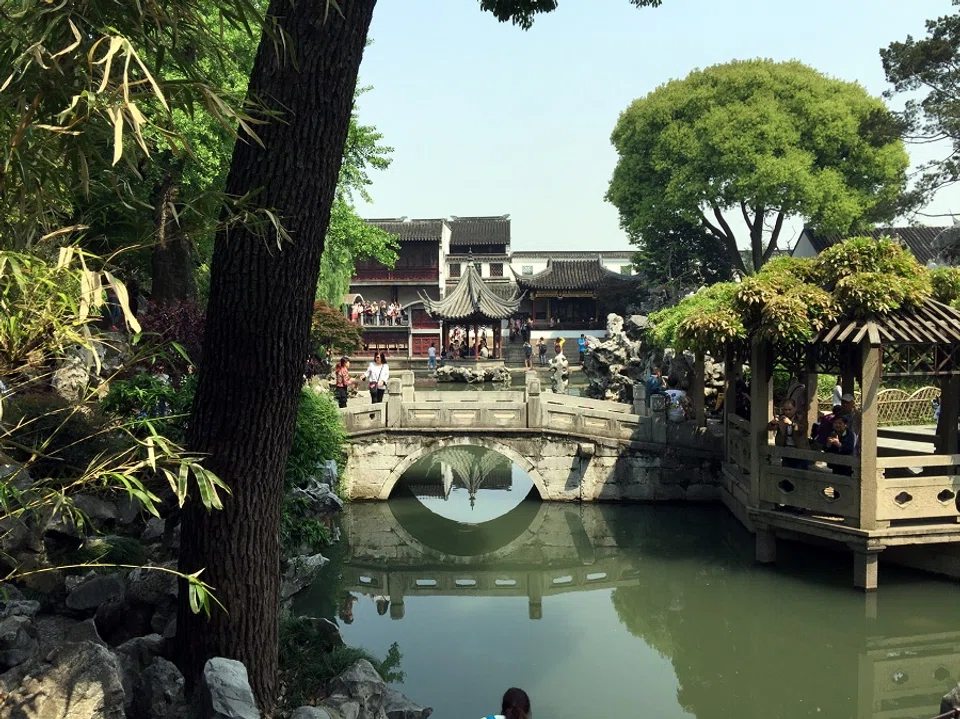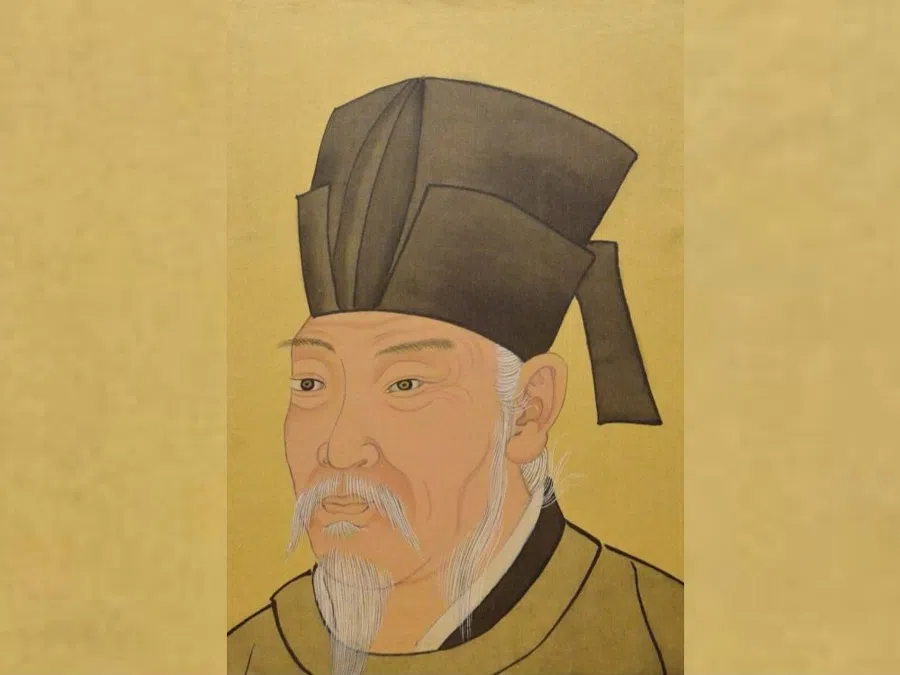Bai Juyi: This Tang dynasty poet enjoyed a good life
Cultural historian Cheng Pei-kai gives us a glimpse into the life of Tang dynasty poet Bai Juyi, whose later years were leisurely spent as a carefree and frivolous official often writing about the blazing heat of summer.

After turning 51, Tang dynasty poet Bai Juyi, courtesy name Letian, enjoyed a carefree political career. He was appointed as the prefect of Hangzhou in July 822, the second year of Changqing under the reign of Emperor Muzong of Tang. He basked in the joy of the mountains and waters embracing West Lake, and wrote countless poems that were widely recited.
Bai Juyi's love for Jiangnan
His famous "A Visit to Qiantang Lake in Spring" (钱塘湖春行) was written in the spring during his second year in office: "From the north of Gushan Temple to the west of Jia Pavilion, the lakewater rises in spring and the clouds hang low. / A few orioles flock towards the trees for warmth, while some swallows are busy building their nests. / The flowers are slowly blooming, a feast for the eyes, while the short grass barely hides the horse's hooves. / I will never tire of my favourite lake scenery, as I cross an embankment under rows of willow trees."
After serving for two years as a carefree prefect of Hangzhou, Bai was transferred to Luoyang, the eastern capital of the Tang dynasty, as chief attendant to the crown prince. He bought a house in Lüdaoli (履道里) and had fully fixed it up.
He dearly missed Hangzhou and Suzhou not only because of the beautiful and mesmerising Jiangnan landscape, but more importantly because he could be far away from the dangerous political struggles in the capital.

A year later, he was appointed as prefect of Suzhou and became acquainted with Yuan Zhen (元稹), Cui Xuanliang (崔玄亮) and Liu Yuxi (刘禹锡). He leisurely scaled the Dongting Mountains near Lake Tai and built the street canal Seven-Li Shantang (七里山塘), so he could sail in a boat with the company of singers and dancers, enjoying music, singing and dancing all the way to Huqiu Scenic Area. He was truly a carefree and frivolous prefect.
After over a year as Suzhou prefect, Bai took a long sick leave. Subsequently, his good friend Pei Du, who was a chancellor at the time, recommended that he return to the capital, and Bai left his beloved Jiangnan to become secretary of the imperial secretariat and vice-minister of the justice ministry.
He dearly missed Hangzhou and Suzhou not only because of the beautiful and mesmerising Jiangnan landscape, but more importantly because he could be far away from the dangerous political struggles in the capital.

One of our most familiar poems of Bai is "Remembering Jiangnan" (忆江南), which he wrote in his later years. The first stanza goes: "Jiangnan is a good place and I was once very familiar with the sights and scenes there. / In the springtime, the sun rises from the river, beating down on the flowers and turning them fiery red. / The teal of the river is even more vibrant than blue grass. How can one forget about Jiangnan?"
... if Bai's life was too comfortable that the weather was the only thing he could whine about.
Enjoying life's greatest pleasures
Bai finally retired from officialdom at 58 years old and returned to Luoyang, acting as the crown prince's secretary, essentially a paid nominal position. In his later years, he lived in Luoyang for two decades and was even promoted to the crown prince's tutor. He travelled around, learnt the ways of Buddhism, drank wine and tasted tea, played the qin and wrote poems, living a carefree and comfortable life.
Interestingly, during his later years in Luoyang, Bai wrote numerous poems about escaping from the summer heat, leading one to question if the summer climate in northern China during the Middle Tang period had indeed been so unbearable, or if Bai's life was too comfortable that the weather was the only thing he could whine about.

In 830, the fourth year of Dahe under the reign of Emperor Wenzong of Tang, 59-year-old Bai was living a carefree and comfortable life in Luoyang. Yet he wrote two poems complaining about the summer heat: In "Terrible Heat" (苦热), Bai described his heat-induced headaches and dizziness though he still counted himself lucky for being a free, retired man who did not need to slog under the hot, blazing sun like other people; in "Beat the Heat" (销暑), Bai wrote about doing nothing at home and trying to keep a calm heart to feel cooler on a hot day.
Bai wrote poems complaining about the summer heat every year. In 835, the ninth year of Dahe under the reign of Emperor Wenzong of Tang, 64-year-old Bai wrote "Where Can I Go to Escape the Summer Heat" (何处堪避暑). He actually answered his own question in the poem, which talks about him living comfortably in his residence at Lüdaoli for six, seven years, with trees providing ample shade for his house, a big pond where he could sail his boat on, and a cup of tea he could drink when he wakes up, enjoying life's greatest pleasures.
His body may have been experiencing the scorching summer heat, but Bai's heart was sorrowful and cold.
Detached from the political struggles
But why was he still troubled? It is because during the warmest, most humid and muggy time of the year, his good friend Yang Yuqing (杨虞卿), courtesy name Shigao (师皋), who was then a mayor of the capital, was demoted to sub-prefect of Qianzhou (虔州, today's Ganzhou, the southernmost area in Jiangxi) and exiled to the border area.
Bai had good reasons to be worried as Yang soon passed away in exile in Qianzhou. Because of this, Bai wrote "Mourning Shigao" (哭师皋), of which a line reads: "Who passed away and who's saying goodbye? Letian is mourning Shigao. / All his life he has been loyal and righteous but only I know the grievances he faced."

Bai even recounted in the poem that Yang would beautifully sing a song whenever he was in high spirits after having a drink, and had a young courtesan who could skillfully play the pipa, but nobody knew her whereabouts anymore.
He added, "The wind howls and the Chinese white poplar tree casts many shadows; the grass is wet and the air reeks of sweet wormwood. / I weep before his grave, henceforth separated from my friend forevermore."
His body may have been experiencing the scorching summer heat, but Bai's heart was sorrowful and cold.
Yang's unfortunate fate was related to a party struggle, but Bai had long detached himself from political struggles and only wanted to be in the company of his friends and enjoy life. How unbearable it must have been for him to see his friend getting into trouble and later passing away in the muggy Nanjiang region.
This article was first published in Chinese on United Daily News as "白居易避暑" in 2023.

![[Big read] Paying for pleasure: Chinese women indulge in handsome male hosts](https://cassette.sphdigital.com.sg/image/thinkchina/c2cf352c4d2ed7e9531e3525a2bd965a52dc4e85ccc026bc16515baab02389ab)

![[Big read] How UOB’s Wee Ee Cheong masters the long game](https://cassette.sphdigital.com.sg/image/thinkchina/1da0b19a41e4358790304b9f3e83f9596de84096a490ca05b36f58134ae9e8f1)

